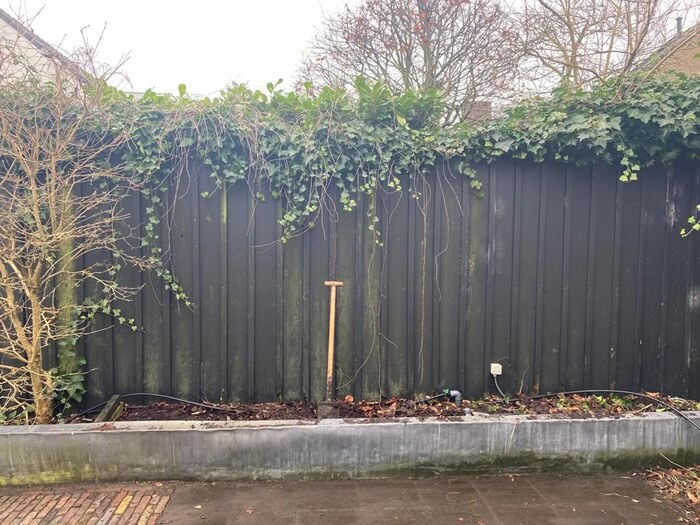Climbing plants like English ivy can be an easy and beautiful way to decorate your home and garden. It isn't uncommon to see these vining plants climbing trellises, arbors, or even fences — much like the fence shared by one Redditor and their neighbor.
The poster turned to the r/gardening subreddit to seek advice on incorporating the plant into their landscaping.
"What do people think about using our neighbor's established English ivy to start to cover our bland wooden fence?" they asked above a series of photos of the well-established vine.


"It will destroy your fence," wrote one user, which over a thousand people liked.
"It's a bad idea and already out of control. ID CALL A PRIEST," jokingly but truthfully warned another.
English ivy's unique clinging ability makes it an attractive yard feature but may also cause headaches down the line, as many homeowners have learned.
English ivy can cling to almost anything, thanks to its small, aerial roots that grow on its stems. These roots can permeate small cracks in wood, mortar, or brick, loosening structures and introducing moisture, causing decay. Plus, its dense foliage can easily hide pests, vermin, and structural damage until it's too late.
Many Redditors cautioned against the ivy-covered fence, sharing their own horror stories.
"Previous owners of our house planted ivy along the fence. While it's beautiful, the whole fence was weak. This past summer, after a gust of wind, the fence completely fell apart," wrote one.
Another commenter recommended protecting their side of the fence by installing planters with trellises offset from the fence by several inches. They explained that trailing the ivy over the trellis would allow continued growth of it without further damage to the fence.
Others suggested equally attractive, less harmful vining alternatives to English ivy — which is considered to be an invasive species in many countries, including the Eastern and Western United States.
"There are some plants that do just fine on a wall or structure, like Climbing Hydrangea. It does not latch onto structures the same way other ivies do," one suggested.
Unlike English ivy, other climbing plants can be higher maintenance. When choosing the perfect climber for one's location, its hardiness zone number must be equal to or less than the hardiness zone number of its location. Consult local invasive species lists to avoid plants that would harm native species, and opt for native plants whenever possible.
Join our free newsletter for easy tips to save more, waste less, and help yourself while helping the planet.









